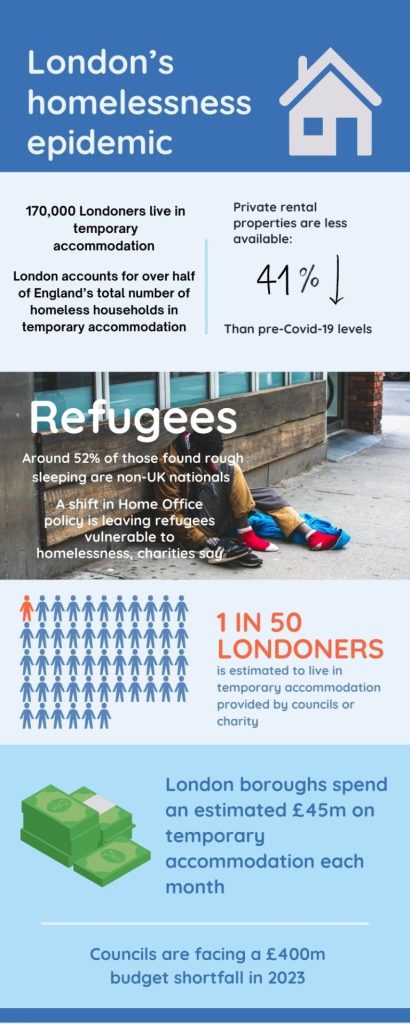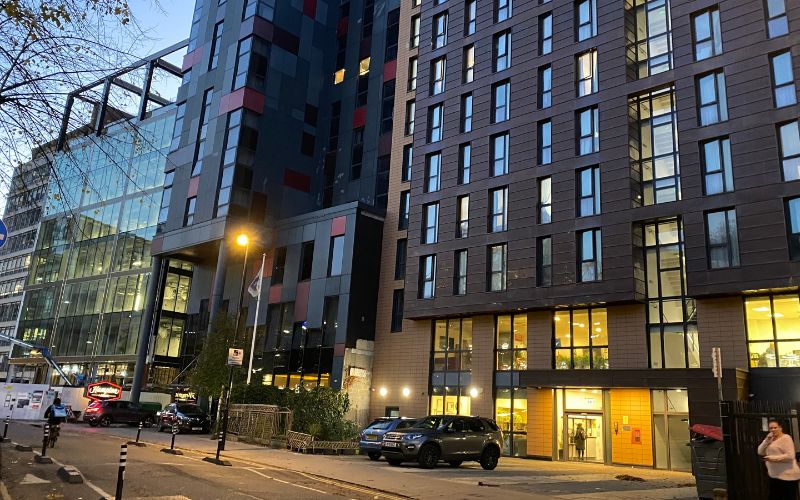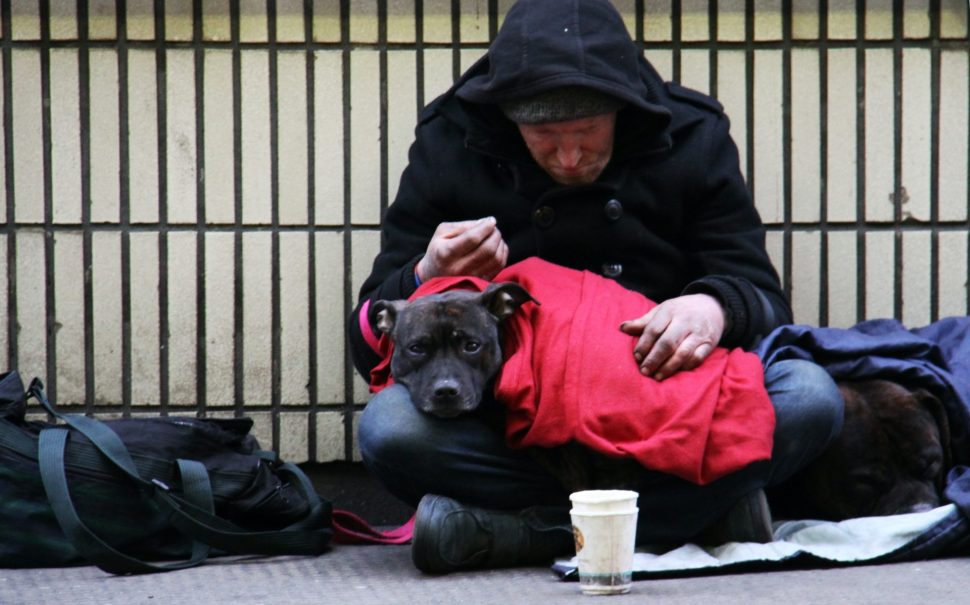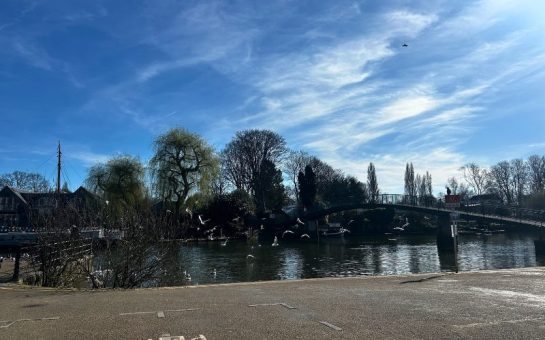The temperature has dropped, the morning is marked by frost and the night-time by ice; winter is here.
For many of London’s eight million residents, it marks a time of festivities like Christmas shopping and social events in the final push before the new year.
But for another group of the city’s residents, rough sleepers and people facing homelessness, the cold and rainy winter conditions make it the most challenging time of year.
At the end of last month, London Mayor Sadiq Khan issued the city’s ‘severe weather emergency protocol’ for the first time this winter, which ensures councils and charities open additional emergency accommodation for people sleeping out.
Charities have opened winter shelters and outreach teams are walking the streets to find those sleeping out.
But winter or not, for months homelessness charities have been juggling a surge in demand for their services as London’s soaring cost of living, affordable housing shortage, and shift in Home Office refugee policy are leaving more people in vulnerable positions.
Official data from the Combined Homelessness and Information Network (CHAIN) shows that the number of people sleeping on the streets has been rising for consecutive months.
One of the main drivers has been the surging prices of the private rental market and a dearth of affordable flats.
In London prices have risen the highest in England – consequently ostracising those from a lower socio-economic background.
A recent report from the Office for National Statistics shows that London prices increased by 6.8% in the year to July 2023, marking the highest annual change in 17 years.

How charities carry a state burden
As local authorities report black holes in budgets and piles of debt, the burden is being carried by homelessness charities, which have been answering more calls from people in need.
One such charity is Evolve Housing and Support (Evolve) which operates in boroughs in south and west London. Alexandra House in East Croydon is Evolve’s 80-room temporary accommodation service for single adults referred by Croydon Council.
For up to 24 months, residents live in a state of independence alongside a support system until they are ready to move into fully independent living and are relocated to council flats.
Evolve welcomes individuals with varying and complex needs: from substance abuse to mental health problems, family breakdowns or landlords taking back apartments, and most recently, homeless refugees.
The 80 or so residents, or customers, as Evolve calls them – “because they have a stake; we want them to have a say” – are helped by specialist counsellors, therapists and medical care, alongside pastoral care from Evolve’s staff. Alexandra House is the biggest 24-hour supported housing provider in London’s largest borough.

While homelessness has been a lingering issue for the city, Alexandra House’s manager Gerard Kona says there has been a noticeable increase in the number and frequency of people in need.
Kona, 44, explains: “Today, we are getting contacted from family members [directly] rather than using the usual channels through Croydon Council, which is the only source of referral.
“We are now getting phone calls, or emails from families in distress sometimes, asking me whether we can take them on because they have nowhere to go.”
Kona has managed the house for the past two-and-a-half years and said the past few months have been some of the busiest. Some people, he says, turn up at the door with suitcases, while others come discharged from hospital or straight from prison.
The modern seven-story apartment block of Alexandra House blends in amongst its surroundings, reflective of East Croydon’s recent regeneration: office blocks, restaurants, bars, hotel chains, a gym and a Starbucks. It feels incongruous against the struggles and hardships experienced by the men and women at Alexandra House.
This feeling is perhaps amplified knowing the financial strains of Croydon Council which declared bankruptcy for the third time last November, facing an outstanding debt of £1.6bn.
The council plays an integral role in supporting those facing homelessness and is currently undergoing reforms to improve their housing provision, a spokesperson for Croydon Council said.
“Like other London boroughs, Croydon has been impacted by an increase in homelessness and a London-wide housing shortage, which means we’re not always able to provide accommodation as quickly as we would like to,” the spokesperson said.

Stuck in a cycle of homelessness
Agatha was living with her grown-up daughter in an apartment in London and had a job as a receptionist when she fell into depression.
“I stopped working and I didn’t apply for benefits,” Agatha explains, sitting in the kitchen lounge common area of Alexandra House where she has been living since February.
“I didn’t know how to go about being homeless,” she recalls. “So I used to sit by the roadside or sit on a bench and a random person would just pick me up and take me in for a few nights.”
Before finally finding sanctuary at Alexandra House, the 50-year-old former production assistant found herself trapped in a ‘volunteering’ setup in which she worked 47 hours a week in a charity shop to compensate for her room at another homeless charity’s accommodation service.
She described how the ordeal triggered feelings of anxiety and sent her mental health spiralling.
“When you first start off, you have the whole excitement of a roof over your head, but then full time work starts to take its toll.”
The charity gave her three weeks to find new accommodation when she told them she had to leave. “But I couldn’t sort myself out; I couldn’t get another accommodation because I didn’t have a deposit [to rent]. So I ended up back on the street.”
Agatha’s story exemplifies how many people can be stuck in a cycle of homelessness as the system struggles to meet the long-term recuperation needs of vulnerable people. While a hot meal and a bed for the night is a welcome respite, it cannot substitute for the round-the-clock care of services like Evolve, and relays the importance of affordable housing options.
In a state of inadequate welfare
At present, state welfare includes a housing benefit known as Local Housing Allowance (LHA) which helps to cover rent for low-income groups.
But as rent prices have soared over the past three years, the benefit no longer covers costs.
Charities have since been campaigning the government to adjust the LHA to inflation rates. It was finally unfrozen in Chancellor Jeremy Hunt’s Autumn Statement in November.
London Councils, the cross-party organisation representing the city’s boroughs, said the move was “essential for helping low-income Londoners pay their rent and avoid homelessness”.
When asked what she thinks should be done to alleviate the crisis, Agatha says: “More affordable homes need to be built.”
“A place like Evolve is not a roof over your head for a lifetime, whereas a council flat is.”
Adding new pressure to local services and charities has been a shift in Home Office behaviour regarding temporary accommodation for refugees and asylum seekers.
Those granted the right to remain in the UK are given 28 days by the Home Office to find somewhere new to live following state-supported accommodation, but in reality, people are being evicted after just seven days, refugee charities and rights groups have warned.
Kona says that while it is not in his nor Evolve’s remit to assess someone’s status, they will always strive to help:
He says: “We will always try to help anyone that turns up, whether for food, for warm tea or coffee.”
Featured image credit: Nick Fewings on Unsplash





